As IranWire has reported, hundreds of Iranians have sustained severe eye injuries after being hit by pellets, tear gas canisters, paintball bullets or other projectiles used by security forces amid a bloody crackdown on mainly peaceful demonstrations. Doctors say that, as of now, at least 580 protesters have lost one or both eyes in Tehran and in Kurdistan alone. But the actual numbers across the country are much higher. The report concluded that such actions by the security forces could constitute a “crime against humanity,” as defined by Article 7 of the Rome Statute.
IranWire has explored this question more deeply in an interview with Professor Payam Akhavan, a prominent human rights lawyer, special advisor to the Prosecutor of the International Criminal Court and a former member of the Office of the Prosecutor of the International Criminal Tribunal for the Former Yugoslavia.
IranWire is aware of more than 50 serious eye injuries sustained by protestors and bystanders over the past five months. With the help of independent ophthalmologists, we have reviewed the medical records of around a dozen individuals and compiled a comprehensive medical report.
In the series of reports “Blinding as a Weapon,” IranWire presents the victims’ stories told in their own words. Some have posted their stories, along with their names and pictures, on social media. Others, whose real names shall not be disclosed to protect their safety, have told their stories to IranWire, which can make their identities and medical records available to international legal authorities and the United Nations Special Rapporteur on the situation of human rights in the Islamic Republic of Iran.
This is the story of Sepehr Khaleghi, a protester who lost an eye during a protest. Despite all the physical and psychological suffering he went through, this young man says: “If I were to encounter the assailant, I would embrace him and say: 'I forgive you.'”
***
Imagine a hospital filled with protesters suffering from severe eye injuries.
They lie on their beds, enduring immense pain, shedding tears and bleeding, while their relatives desperately rush around to save them.
They anxiously await the arrival of the doctor, hoping for reassurance that their loved ones haven't lost their sight.
Now, let's transport ourselves to the emergency room of Farabi Hospital in Tehran. Sepehrn Khaleghi lies on a bed, his eyes and face covered in blood.
By his side, a girl who had lost one eye was having blood-soaked vomiting caused by stress. Across from Sepehr’s bed, a man with a bloodshot eye drifted off to sleep. His young wife sits beside him, inconsolably weeping and murmuring: "I wish I were in your place."
The girl was on her way back from work when she encountered protests. Amidst the chaos her headscarf fell off and at that moment two paintball bullets struck her eyes.
Sepehr left his workplace during a crowded street demonstration when an officer inside a van aimed at him.
The emergency department buzzes with noise. Tearful parents search for their loved ones and stand by their sides amid fear that they could be arrested within the confines of the hospital.
In the examination room, a doctor is sitting and calls in patients one by one. They take a seat in front of the doctor, and the examination started.
Doctor: Do you see light?
Injured: No.
Doctor: You’re blind. Get up and go. Next!
Where was Sepehr
On November 15, 2022, Sepehr left his house at approximately 1 p.m., accompanied by friends.
Sepehr and his friends joined a group of around 10 to 15 girls who were gathered opposite the main entrance of a shopping center and were chanting slogans.
Security forces arrived on motorcycles less than 15 minutes after the small rally began and started firing paintball guns and tear gas canisters at the protesters.
Sepehr was hit by a canister. He could neither hear nor see anything. One of his friends shouted his name, urging him to get up and run because the agents were approaching.
While Sepehr was regaining his senses his friends grabbed him by the shoulders before running through narrow alleys, yelling for someone to open the door of a house.
Blood streamed from Sepehr's face.
Finally, a door swung open and the boys rushed inside. A woman inside fainted upon seeing Sepehr. The young daughter of the family rushed toward the group and asked: "What happened?"
One of his comrades applied sterile gauze to one of Sepehr's eyes, which was visibly protruding, exerting gentle pressure on it in an attempt to put his eye back into its socket.
The Truth in the Mirror
The boys eventually managed to find a car to take Sepehr to hospital, while blood continued to pour from his eyes.
At the first hospital they reached, the group informed the doctor that Sepehr sustained his injuries during a fight. Sepehr had a piece of iron lodged in the eye, a broken eyebrow and a deformed skull.
After understanding the real cause of Sepehr's condition, the doctor instructed the boys to take him elsewhere.
Sepehr's family was still unaware of the severity of his injuries. At that moment, the mother of one of his friends arrived.
Hospital security guards tried to prevent them from leaving, but the mother's passionate pleas and the doctor's intervention created a diversion that allowed Sepehr’s friends to whisk him away.
Their destination was Farabi Hospital, which was filled with injured people and was bustling with chaos.
In front of Sepehr stood a mirror which showed him the harsh truth — his eye was gone.
Sepehr's parents arrived, and tears flowed freely. Their beloved son, a symbol of the street unrest and the protesters’ suffering, lays on a hospital bed.
He underwent his first surgery on the night of November 16, but an infection developed in his eye after 20 days, forcing him to seek treatment at a private clinic where he underwent another operation.
The third surgery, which took place in June, addressed the skull deformity caused by the impact of the tear gas canister.
Mournings with one eye
The first image Sepehr shared on his Instagram page is a silhouette of himself against a dark backdrop, without his eyes but with a smile on his face. If you move to the other picture, his eyes are open, but the smile is gone.
In the caption accompanying the photo, Sepehr's mother says that when she wakes up in the morning she purposefully opens only one eye to symbolize the first image her son sees upon awakening.
The hashtag #azadi, meaning freedom, perhaps encapsulates the essence of the message Sepehr intends to convey through his photos. Undoubtedly, one day, the individual who took away his vision will come across Sepehr’s image and realize that blinding someone did not steal his smile or extinguish his hope for freedom.
“We Must Not Allow Animosity to Take Root in Our Country
Sepehr Khaleghi, born in 1995, had a unique upbringing. As a child, he did not want to attend school and instead aimed to enter the job market at an early age.
After finishing school, he ventured into the business world. After completing his treatment and attempting to return to work in the financial sector, his employers refused to continue their cooperation.
Throughout his treatment, Sepehr found solace in the unwavering support of his family and friends.
His mother, who had previously cared for her veteran husband, remained by her son's bedside at night to administer eye drops and medications to the young man.
Living within such a family environment probably has shaped Sepehr into a different individual.
His friends recount he always expresses forgiveness for his assailant. He would say, "Blood takes root. If I seek revenge, the assailant and their family will suffer as well. If I were to encounter the assailant, I would embrace him and say: 'I forgive you.' We must not allow animosity to take root in our country.”
"Revenge, execution, and murder only breed hatred and malice. We need to eradicate these sentiments from our society to truly understand the essence of humanity. Perhaps if the assailants witness love, they will realize the gravity of their mistake."
visit the accountability section
In this section of Iran Wire, you can contact the officials and launch your campaign for various problems












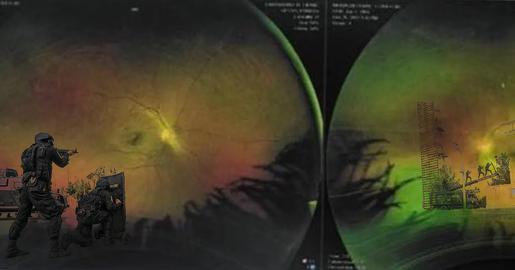
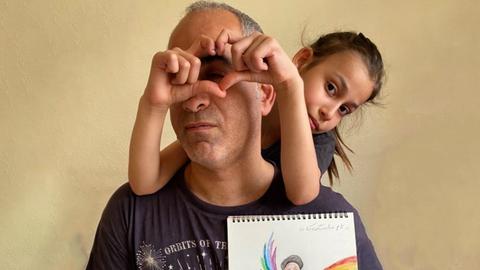
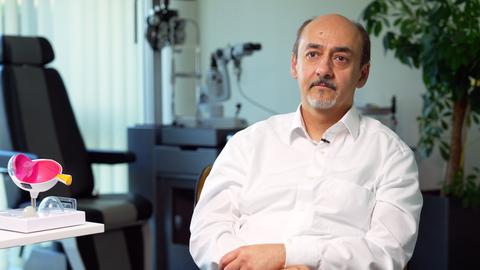



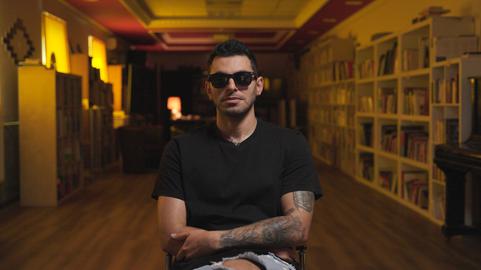


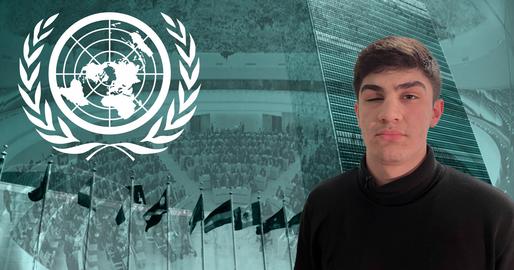



comments